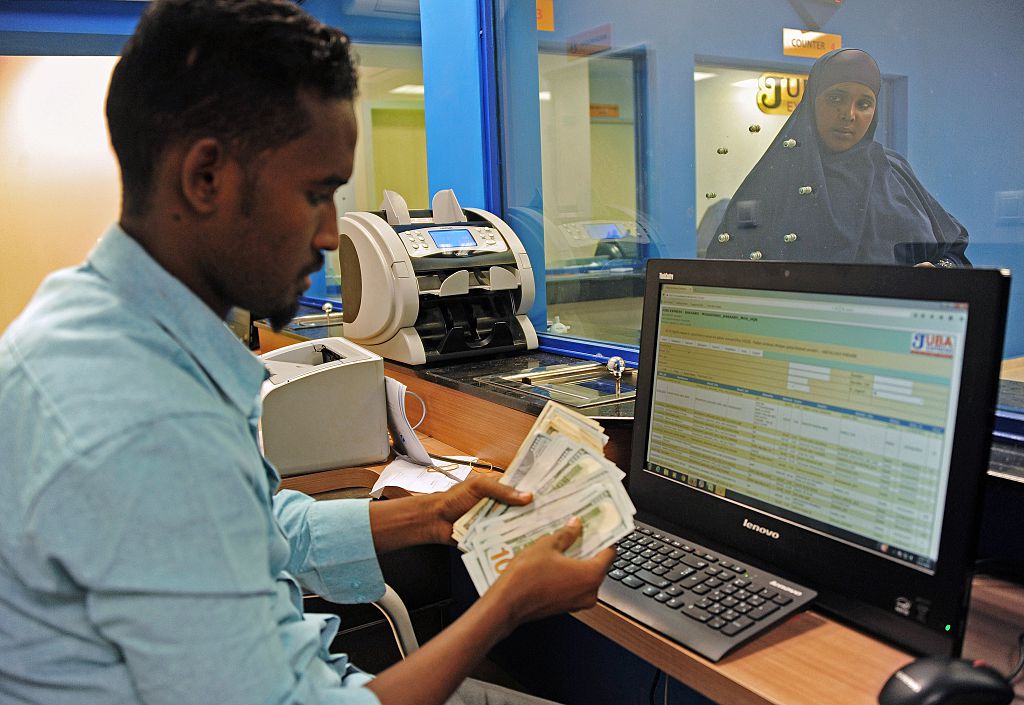ADF STAFF
Somalia’s Deputy Minister of Information, Abdirahman Yusuf Al-adala, recently gave a startling update on the country’s war against the powerful and deeply embedded al-Qaida-linked extremist insurgency it has fought since 2006.
“The extortion that al-Shabaab used to collect from Somali citizens from the ports and airports has been terminated,” he said at a news conference in the capital, Mogadishu, on March 30.
“Fifteen vehicles used by al-Shabaab to collect funds were seized, and 20 leaders who were in charge of collecting funds were killed.”
Somalia launched a sustained military offensive against al-Shabaab in July 2022 and has made a concerted effort in recent months to cripple the insurgency’s vast revenue streams as well.
Experts such as Aweis Ahmed, who teaches politics and foreign policy at Mogadishu University, say it is a daunting task.
“The capability of the [government] to curb al-Shabaab funds is limited,” he told The Africa Report magazine.
Al-Shabaab collects as much as $120 million annually with about $24 million of its yearly budget used to procure weapons from abroad, according to a 2022 United Nations report.
Most of the money is obtained through extortion, including taxing local businesses and individuals, facilitating illicit trade, and collecting fees on goods at checkpoints and ports.
Al-Shabaab gets financial assistance from foreign sources, but it also has given al-Qaida’s central command “tens of millions of dollars,” according to the U.N.
The Amniyat, al-Shabaab’s secret security and intelligence wing comprised of about 500 to 1,000 operatives, collects and handles the group’s finances.
They generate revenue in 10 of Somalia’s 18 administrative regions, despite not having a physical presence in all of them.
Using violence, threats and mafia-like tactics, al-Shabaab intimidates businesses into paying taxes on real estate transactions and shipping imports.
A 2022 report from the Hiraal Institute, a Mogadishu-based think tank, estimated that al-Shabaab collects $15 million a month — as much revenue as the Somali government accrues.
All major companies in Somalia give money to al-Shabaab in monthly payments and a yearly “zakat,” or tax, of 2.5% of annual profits, the report said.
Experts say it will be difficult to dismantle al-Shabaab’s revenue streams, as the group controls about a third of the country, including an estimated 70% of southern and central Somalia, where agriculture drives steady commerce.
Matt Bryden, a security expert and strategic advisor at the Kenya-based Sahan Foundation think tank, said the Somali government must shore up financial regulations that al-Shabaab exploits through banks and money transfers known as “hawalas.”
“A government crackdown on the financial sector and tightening up the loopholes is also going to be key to combating al-Shabaab and drying up its resource base.”
Somali President Hassan Sheikh Mohamud has vowed to do just that by better monitoring the formal banking sector and enforcing the 2016 Anti-Laundering and Terrorist Financing Act, which requires financial institutions to report all transactions of $10,000 or more.
He also warned businesspeople that anyone found supporting al-Shabaab, willingly or through extortion, would risk having their trading licenses revoked.
In mid-January, the government announced it had frozen 250 bank accounts and 70 mobile money-transfer accounts linked to al-Shabaab activity.
“This was a major victory and was only possible because of the tips of the Somali citizens,” Prime Minister Hamza Abdi Barre said during a January 11 gathering of Somali diaspora members in Cairo, Egypt.
“We are in the process of investigating the amount of the frozen money in the closed accounts. We can’t sit back and allow them [al-Shabaab] to wreck our future for selfish gains.”
In his March announcement, Al-adala said blocking al-Shabaab accounts cut the group’s annual and monthly income in half.
Still, the well-funded insurgency persists.
Its operatives have physically intimidated numerous money-transfer operators, who fear reporting transactions that exceed $10,000.
In 2019, private financial institutions in Somalia reported just nine suspicious transactions and 113 large cash transactions, according to new research published by the Africa Center of Strategic Studies (ACSS).
More recently, al-Shabaab has found ways around the regulations by transferring $9,500 at a time to avoid having its transactions flagged.
Most al-Shabaab transactions are made with cash and mobile money transfers. Every month, Somalis make an estimated 155 million mobile money transactions worth about $2.7 billion, ACSS researcher Wendy Williams wrote in a March 27 article.
Former Minister for Planning and International Cooperation Abdullahi Godah Barre called for Somalia to invest in its investigating agencies to improve capabilities and capacity.
He also said the government should prosecute anyone who enables al-Shabaab’s use of the banks.
“The employees of the banks must be held accountable,” he told Voice of America. “Those who are proxies, whose names are used to open accounts, should be prosecuted and face justice.”

